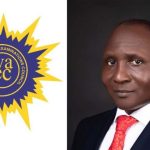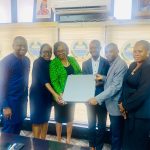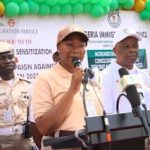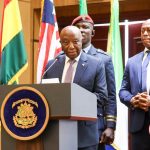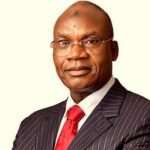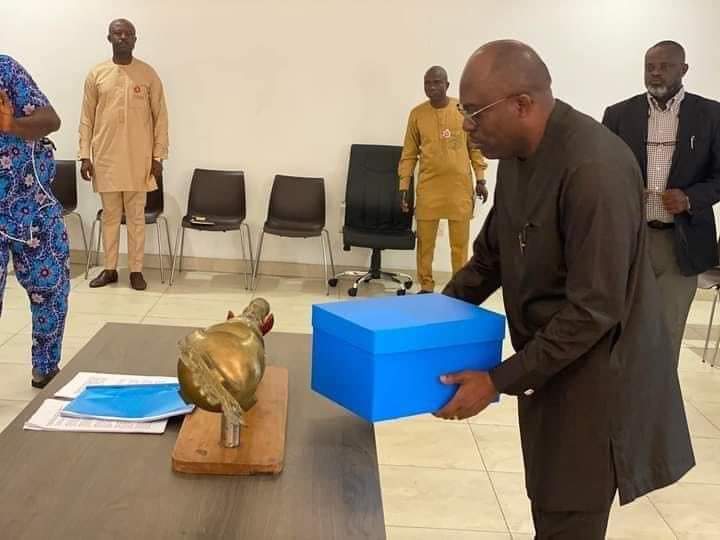
THE renewed warfare in Rivers State between Governor Siminalayi Fubara and lawmakers reflects the desperation of politicians to control power, governance and public resources. Tensions blew open again on Monday when 27 legislators elected under the umbrella of the Peoples Democratic Party defected to the All Progressives Congress. Fubara responded by demolishing the state’s House of Assembly complex in Port Harcourt for “renovation.” These developments, if not contained soon, could precipitate anarchy in Rivers and beyond.
Though the major gladiators are elsewhere, the ferocious battle for the soul of Rivers is playing out in the state’s legislature. In October, lawmakers reportedly loyal to Nyesom Wike, the political godfather who had facilitated Fubara’s emergence, commenced impeachment proceedings against the governor and the majority leader, Edison Ehie. Before the move crystallised, however, unknown thugs set fire to the HoA complex overnight.
During an inspection tour of the complex the following day, security agents fired teargas at Fubara’s entourage. There are now two factions in the assembly, one headed by Ehie, a Fubara acolyte, and Martin Amaewhule, leader of the defectors.
Earlier, Fubara had won a reprieve after an intervention by PDP governors and elders, who asked the gladiators to sheathe their swords. On Monday, the truce collapsed after the 27 lawmakers defected. Unconvincingly, they cited a crisis in the PDP.
Political watchers trace the upheaval to the resistance of Fubara to the alleged overarching influence of Wike, governor between 2015 and 2023 and the incumbent Minister of the Federal Capital Territory. Publicly, Wike has indicated his interest in retaining influence in the state. These are personal preoccupations that should have nothing to do with governance.
But in Nigeria, politicians conflate their personal ambitions with public office, and are contemptuous of the law. By law and morality, the 27 lawmakers who quit the PDP should automatically lose their parliamentary seats, though two are said to have returned.
Politicians have made democracy farcical. On Wednesday, Fubara presented the state’s N800 billion 2024 budget for approval to only five out of the 32-member HoA at a “plenary.” Effectively, the defection has, at least temporarily, deprived residents of 27 state constituencies of representation.
In Uganda, a lawmaker who defects automatically loses his seat. In the United Kingdom and India, public opinion can force a lawmaker to resign after defection, but he can contest the by-election for the vacant seat.
In many ways, Rivers is important in Nigeria. One of the oil and gas-rich Niger-Delta states, it hosts the Nigerian headquarters of major international oil companies. It has however, been plagued by militancy and insecurity since the turn of the century. Apart from the enormous power wielded by state governors, its share of the 13 per cent oil derivation are prizes which various interests desperately seek to control.
The Fourth Republic has witnessed such dark skirmishes between political godfathers and their godsons. In 2003, the incumbent governor of Anambra State, Chris Ngige, was kidnapped by rogue security agents hired by his godfather. Similar confrontations have occurred in Lagos, Edo, Ondo, and Imo, where the governors or deputy governors faced impeachment proceedings by lawmakers at the bidding of the godfathers.
Consequently, development suffers, mass poverty is rampant, and democracy is stunted, conferring benefits only on the narrow class of political desperados.
Influential voices in Rivers and beyond should rise to prevent Rivers from descending into anarchy. Already, ethnic undertones are audible, and threats have been made. Fubara’s opponents should operate strictly within the law. The interests of the people are far greater than the narrow interests and egos of politicians.
Fubara should exercise restraint in governance. Wike was governor for eight years, and currently, he has enough on his plate as the FCT minister, he should face that task squarely.





